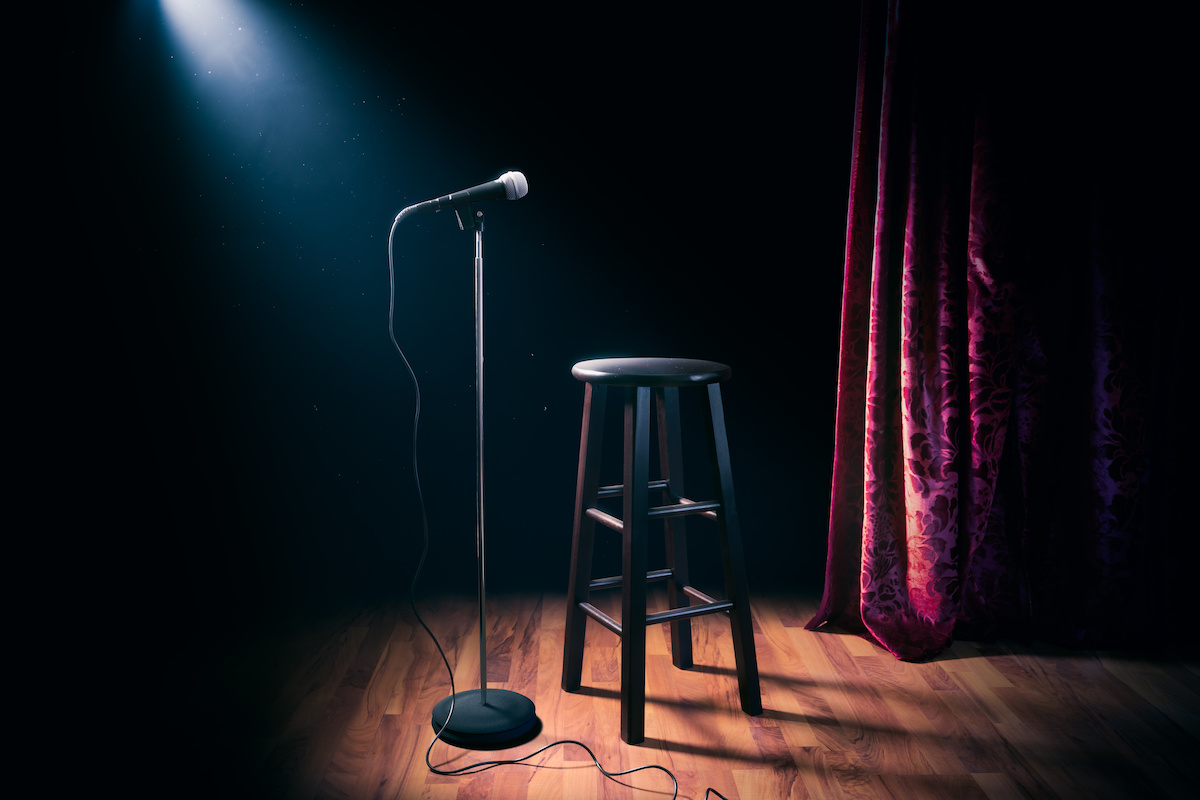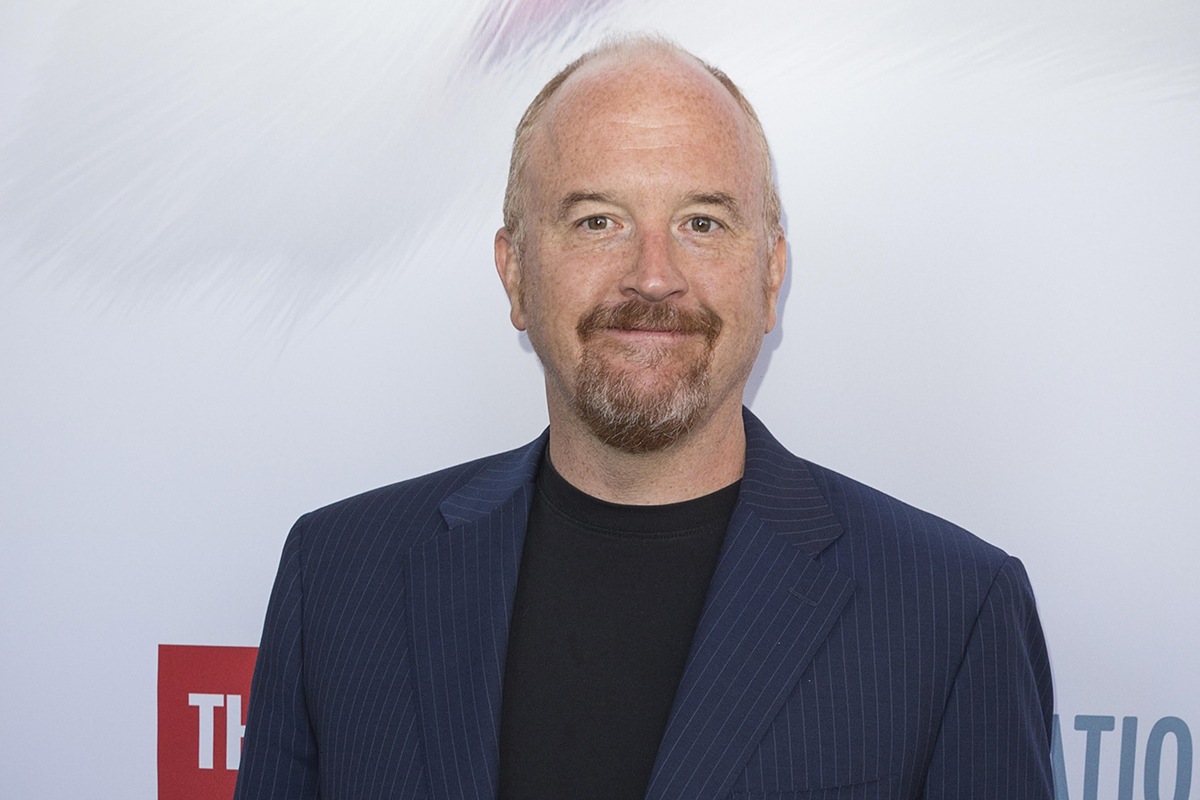Art
Imperfect Comedy in an Age of Perfection
Comedy, on the other hand, reminds us that we all have a dark side and that we might want to reconsider before casting stones.

While on stage recently, I had an interaction with a heckler which ended with him being thrown out of the venue. At comedy clubs, this is not a particularly unusual occurrence. But the heckler wasn’t noticeably drunk, nor had the joke to which he’d taken exception been especially offensive. So this incident stopped me in my tracks and made me think a little bit.
Here’s what happened: I was halfway through a ten minute bit about the #MeToo movement and I was pointing out that some of us are better at managing our creepiness than others. “Matt Lauer,” I went on, “pulled his dick out at work and that cost him a 26 million dollar job. Some people do the same thing on the subway and it only costs them 2.75.” Before I could go any further, a voice in the audience cried out, “Are you saying that’s okay?” “Is that what you heard?” I replied. “It sounds like you’re saying sexual assault on the subway is okay,” he retorted. “You’re validating sexual abuse.” We exchanged a few more unproductive words, he got belligerent, and then security arrived and bounced him out of the door so the show could continue.
Situations like this one are by no means unique to comedy. Spend some time on Twitter, and you’ll discover an environment ideally suited to callout culture. Sifting through the righteous anger, two related and recurring trends become apparent: First, the practice of holding others to an impossible standard of ideological purity and, second, the practice of advertising one’s own moral superiority. Neither of these practices has any basis in reality, because we all have flaws we strive to keep hidden and, no matter how ferociously we denounce our neighbor, we are all only one unguarded remark from a public shaming.
Comedy, on the other hand, is neither pure nor virtuous. In fact, it might actually be the opposite. Comedians frequently take pleasure in mocking their own vices, and we take pride in making others who share them feel less alone. Around 2009, before I even had the courage to admit to myself that I wanted to be a comedian, I remember watching a Bill Burr special in which he asks this question: “You ever drive down the streets, and you see, like, 30 people up on the sidewalk, and you think, VRRRMMM?” (He mimes a hard turn of the wheel, steering his car into the pedestrians.)

The first time I heard that bit, it blew my mind. It wasn’t just funny, it felt like someone had been looking into my head. I would have these awful thoughts all the time and had concluded that I must be a terrible person. I couldn’t share them with anyone and so I felt completely alone. I’m a Haitian who moved to America in 2008, and here’s this Irish white dude from Massachusetts who couldn’t possibly be more different and we’re connecting on a level far more profound than laughter. There’s nothing virtuous about that joke. On the contrary, it’s an admission of a profoundly taboo thought. But suddenly I felt less burdened by those fleeting guilty impulses.
For as long as there has been comedy, there have been heated debates over what is and is not a legitimate topic for humor. It’s a valid question over which reasonable people can disagree. The only problem is that those with the noisiest opinions are often those who know and understand nothing about comedy. And so they worry about jokes “normalizing” or “validating” various reprehensible behaviors and attitudes, and they ask nervous questions like “How far is too far?” What they don’t seem to appreciate is that this kind of thing is generally self-regulating. Usually, if there’s no laugh, it’s too far. Every joke has a single goal: to elicit involuntary laughter. No comedian in his right mind would continue to perform a joke that never gets a laugh. Comedy is a dialogue, and when an audience disapproves, it stops participating.
My heckler need not have worried, for comedy cannot change human nature. Terrible things do not exist in the world because we joke about them; we joke about terrible things because they exist in the world. What you joke about or find funny does not say anything about who you are. (Bill Cosby, I would remind you, was not known for telling rape jokes.)
In an age of performative virtue, people are rewarded with applause and “likes” for telling us how forward thinking, how righteous, and how progressive they are. Comedy, on the other hand, reminds us that we all have a dark side and that we might want to reconsider before casting stones. Each of us is a complex creature capable of entertaining good and bad thoughts. And art has always been the place best suited to exploring the parts of ourselves we must live with, but seldom show.
So if you’re afraid of your flaws and your complexities, and if you’re afraid of your own dark thoughts, then go and see a comedy show. The experience might leave you feeling less weird and less alone.






